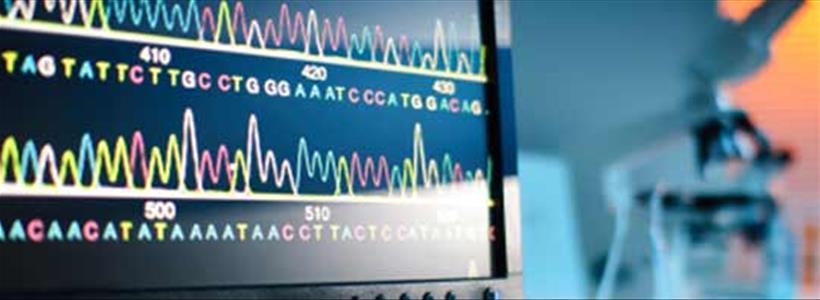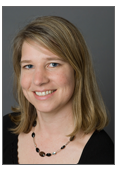
Clinical trial will test women before they conceive for genetic mutations that could cause serious diseases in their children
PORTLAND, Ore., July 23, 2013 – The Kaiser Permanente Center for Health Research will receive $8.1 million from the National Institutes of Health (NIH) to conduct a novel clinical trial using whole genome sequencing to test women and their partners for mutations that could cause rare, but serious diseases in their children.
The project is one of three multimillion-dollar grants awarded this year by the NIH’s National Human Genome Research Institute as part of its Clinical Sequencing Exploratory Research program, which funds innovative projects that explore how to use whole genome sequencing in clinical practice.
The first human genome was sequenced a decade ago at a cost of around $2.7 billion. Sequencing someone’s genome is still a complex process that involves creating a map of three billion letters of genetic code, but the technology has advanced so much that it can now be completed within weeks for only a few thousand dollars.

“We will use whole genome sequencing to help inform couples about their reproductive risks before they conceive. Most of the time couples don’t find out that they carry these mutations until after the mother is already pregnant, or until after the child is born,” said genetic epidemiologist Katrina Goddard, PhD, principal investigator on the newly funded project and researcher with the Kaiser Permanente Center for Health Research.
Whole genome sequencing provides an advantage over individual genetic tests because it allows researchers to locate multiple mutations at the same time. In this case, researchers will look for recessive genetic mutations for about 100 rare conditions. Some of the most serious include Tay-Sachs and Canavan diseases, which can cause early death in children. Others, like Pendred and Usher syndromes, affect hearing and vision.
“There are still a lot of questions about how to use whole genome sequencing in clinical practice,” said Goddard. “We don’t know yet if this is the best way to predict genetic risk and we don’t know what impact the information will have on the couples and their families. These are the questions we hope to answer in our study.”
“Some prospective parents will want information about each of these conditions, but others will only be interested in learning their risk for some of the more serious diseases,” said Benjamin Wilfond, MD, a pediatric bioethicist at Seattle Children’s Research Institute and co-principal investigator on the study. “This study will allow us to provide the information that is important to couples and counsel them about their reproductive options.”
In order for a child to develop one of these diseases, both parents must have a genetic mutation associated with the disease, and they both must pass on a copy of that mutation to the child. For this study, women’s genomes will be sequenced first and if they are found to have a genetic mutation, their partner’s genomes will also be sequenced.
Enrollment and study will begin in 2014 and is only open to members of the Kaiser Permanente health plan in Oregon and Washington who already have an order from their provider to receive preconception genetic testing. For example, the physician may have ordered a blood test to find out if the patient carries the mutation for cystic fibrosis, a chronic inherited lung disease that affects one in every 2,500 Caucasian babies.
Patients who already have these test orders in their medical records will then be asked if they'd like to participate in the whole genome sequencing study. The study will be limited to 380 participants who will be randomly assigned to two groups: those who will only receive the genetic test they requested and those who will receive their requested genetic test as well as whole genome sequencing.
The sequencing will take only a few weeks, but more time is needed to interpret the genetic maps and determine the clinical significance for each patient. Researchers expect it to take about three months from the time they collect blood samples until genetic counselors return information to the couples.
During the study, couples will be asked to fill out surveys about their experiences. Researchers are hoping to learn what information couples find most helpful, how the couples want the information presented, and how they use the information.
Kaiser Permanente is collaborating with researchers from Oregon Health & Science University, University of Washington, Seattle Children’s Research Institute, Decision Science Research Institute, Inc., and Illumina Inc., the San Diego-based company that will perform the sequencing.
This work is supported by the National Human Genome Institute which is part of the National Institutes of Health, (grant UM1HG007292).
This study is part of Kaiser Permanente’s ongoing research to understand the relationship between genetics and health. The Northwest Biobank in Portland, Ore. collects genetic samples from Kaiser Permanente members in Oregon and Washington. The Kaiser Permanente Research Program in Genes, Environment and Health, in Oakland, Calif. has a biobank linking comprehensive electronic medical records, data on relevant behavioral and environmental factors, and blood and saliva samples from consenting health plan members in Northern and Southern California. Kaiser Permanente has plans for similar biobanks in all of its regions. Samples will be used to conduct research that improves disease diagnosis, treatment and prevention.
Read the NIH press release
About the Kaiser Permanente Center for Health Research
The Kaiser Permanente Center for Health Research, founded in 1964, is a nonprofit research institution dedicated to advancing knowledge to improve health. It has research sites in Portland, Ore., Honolulu and Atlanta. Visit kpchr.org for more information.